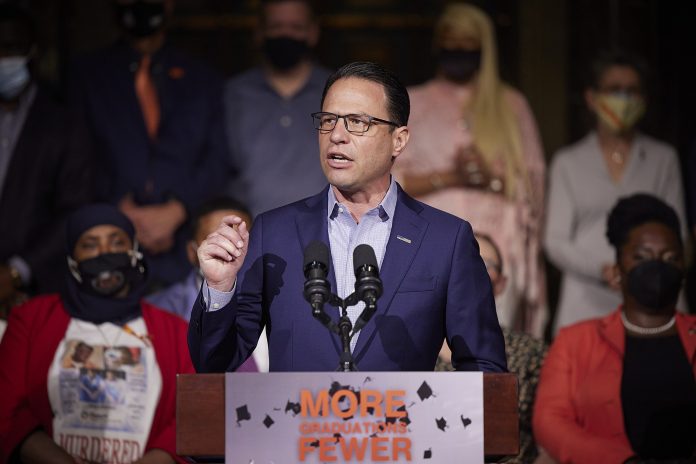Republican senators emphasized concerns over permitting delays and the economic loss that results
(The Center Square) – As officials from the Department of Environmental Protection justified their budget to lawmakers, contentions over a carbon tax and permit approval delays once again became central.
Sen. Gene Yaw, R-Williamsport, is a longstanding critic of the Regional Greenhouse Gas Initiative, arguing that it will drive up energy prices during DEP’s appearance before the Senate Appropriations Committee on Wednesday.
“The money paid by electric generators is gonna be passed on to consumers,” Yaw said.
Gov. Josh Shapiro’s budget proposal estimated that $663 million in tax revenue flowing to the state’s general fund thanks to RGGI implementation.
DEP Acting Secretary Richard Negrin described RGGI as “a compact between states to figure out how they’re gonna do a market-based approach around carbon pricing.”
The goals of RGGI, he said, were to reduce environmental threats, create high-paying energy jobs and protect workers, and make sure citizens have reliable and affordable clean energy.
The costs of the the compact falls upon energy producers, who then pass along the costs to energy consumers.
Negrin also spoke of improving the permitting process. Republican senators emphasized concerns over permitting delays and the economic loss that results.
“We need to be faster, better, and more operationally efficient,” Negrin said.
The DEP has a permit decision guarantee program to speed up the approval process, but businesses have struggled to qualify for it. Of about 40,000 requests to be in the program, only about 9,000 were certified as complete and eligible.
“Less than one quarter of the permit applications we’re receiving are complete,” said Ramez Ziadeh, deputy secretary of field operations. “That’s a big problem.”
The DEP accepted the blame for some of those outcomes.
“It’s incredibly subjective,” Negrin said. “There’s no formalized process around that, so I want to create a formalized process where that early engagement best practice is utilized. When we say ‘your permit is deficient,’ and it’s repeatedly deficient over and over and over, at some point that’s not your fault — it’s ours.”
Outside consultants may be used in the future to reform the process.
“If 90% of the permits that are coming in are deficient at the outset, we’re doing something wrong,” Negrin said. “Our permitting process is either too complex, hard to understand, not very user-friendly … I want this fixed yesterday. I think my team understands that this is a huge priority.”
Plugging abandoned gas and oil wells also came up repeatedly. More federal funding is available to plug the hundreds of thousands of abandoned wells, though critics have argued DEP’s current program lacks transparency and accountability, as The Center Square previously reported. Not plugging them, however, has high environmental and economic costs to the public.
Plugging more wells is a “big opportunity for us and a huge priority for me,” Negrin said. “I think there’s a real opportunity for us to put people to work around Pennsylvania on this issue to help the economy and employees to get this work done.”
In his closing remarks, Sen. Scott Martin, R-Strasburg and chairman of the Appropriations Committee, emphasized the importance of reducing permitting delays.
“If we can get to a system of permitting that’s consistent, but most importantly has accountability — because right now we can’t afford to keep losing opportunities in this state,” Martin said.
Originally published by The Center Square. Republished with permission.
For more from Budget & Tax News.
For more public policy from The Heartland Institute.











